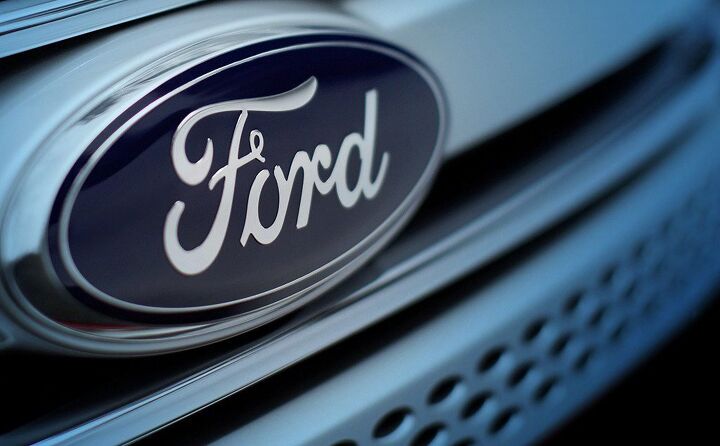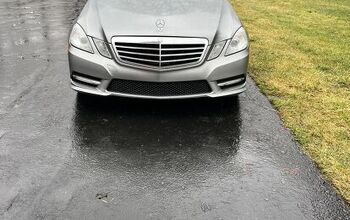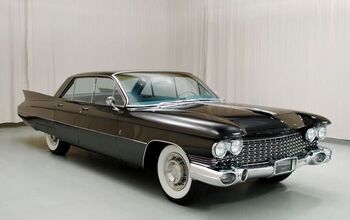Facing Emission Fines, Ford Becomes Ravenous for Carbon Credits

Ford is joining the lengthening list of automakers that cannot adhere to European emissions mandates this year and is pursuing the popular option of simply buying carbon credits from rivals who managed to sell more than a few electrified vehicles.
Under the EU rules, manufacturers can “earn” carbon credits by selling more EVs. But legacy automakers were hamstrung all year by the pandemic and Ford is on the hook for a recall of its Kuga (Escape) PHEV. The Blue Oval recalled almost 21,000 examples of the plug-in hybrid in August, asking owners not to drive the crossover in its electric-only mode and to avoid charging the battery. While alarming in its own right, Ford said the recall effectively makes it impossible for it to meet 2020 EU emission quotas. It is now seeking partners for an “open emissions pool” and is hardly the only manufacturer doing this.
Daimler and Volkswagen Group aren’t on track to meet this year’s targets either. While Daimler chairman Ola Källenius the company was within striking distance of getting its fleet-wide emissions average down to just to 95g of CO2 per kilometer (this year’s limit in the EU), he hasn’t explicitly said the company would meet that goal by the end of 2020.
Meanwhile, Volkswagen has already pooled credits with its Chinese joint venture partner SAIC. Considering VW has made some of the loudest proclamations about becoming a greener company committed to electrification since 2015, it’s more than a little ironic to see it struggle with emissions quotas.
According to the Financial Times and Automotive News, Ford intends to form an open pool for light commercial vehicles because it’s on track to be well below its CO2 target for vans. As a collaborating partner in Ford’s EV and van programs, Volkswagen has already signed itself on to take advantage. That leaves the Detroit-based automaker hunting for dance partners dangerously close to midnight and bragging about how well it scored with its light commercial fleet.
“Based on our product road map and production schedule for this year, we expected to comply with the new regulations even factoring in Covid-related disruption to our manufacturing,” Ford said in a statement. “Therefore, just as many other carmakers have done in Europe, we now intend to join an open pool with other carmakers for passenger vehicles.”
Next year will probably be a repeat of this one. Europe saw a rush on automakers pushing EVs and hybrid models in 2020. Ford even ramped up its marketing budget to sell more Kuga PHEVs in a bid to adhere to increasingly stringent EU emission rules before they were recalled. The rules don’t get any easier next year but regulators seem convinced that the market share of plug-in models will rise to 15 percent (in Europe) in 2021.
[Image: Ford]

A staunch consumer advocate tracking industry trends and regulation. Before joining TTAC, Matt spent a decade working for marketing and research firms based in NYC. Clients included several of the world’s largest automakers, global tire brands, and aftermarket part suppliers. Dissatisfied with the corporate world and resentful of having to wear suits everyday, he pivoted to writing about cars. Since then, that man has become an ardent supporter of the right-to-repair movement, been interviewed on the auto industry by national radio broadcasts, driven more rental cars than anyone ever should, participated in amateur rallying events, and received the requisite minimum training as sanctioned by the SCCA. Handy with a wrench, Matt grew up surrounded by Detroit auto workers and managed to get a pizza delivery job before he was legally eligible. He later found himself driving box trucks through Manhattan, guaranteeing future sympathy for actual truckers. He continues to conduct research pertaining to the automotive sector as an independent contractor and has since moved back to his native Michigan, closer to where the cars are born. A contrarian, Matt claims to prefer understeer — stating that front and all-wheel drive vehicles cater best to his driving style.
More by Matt Posky
Latest Car Reviews
Read moreLatest Product Reviews
Read moreRecent Comments
- Bd2 This should solve some of those awkward styling elements on the first EV6 and doing so only 3 years into the product cycle will also be increasing it's collectible value at future Barret Jackson auctions . A youtuber I follow does expect the Kia EV6 to be among the pioneers of collectible electric cars. I recently traced my 1997 Toyota Supra Turbo for a Kia EV9.
- Redapple2 HK makes rubbish. Spend 10% more. Get 25 % better.
- Redapple2 Bad cars. Bad company. Bad employer for professionals in plants. Evil gm Vampire.
- Bd2 There's nothing wrong with admitting there is a problem yet that is but the first step. Hopefully GM can resurrect their vaunted hybrid technology and apply it to high value luxury vehicles and perhaps give the world a revival of that V Magic. They could even give Genesis a run for it's crosshatched grille money.
- TMA1 Tell me the ICE version is going to weigh less. A 5,800 lb electric Charger just took the worst part of the old Charger and made it 30% heavier.


































Comments
Join the conversation
"Ford employs some of the absolute worst “engineers” in the world" Matt, I wouldn't blame the engineers. As an engineer, you can design something properly, but then some bean counter or manager tells you to reduce the cost. When you argue that cutting any costs will hurt the quality of the product, they'll say they don't care. You can have the most brilliant engineers in the world, but if management gets in the way, you'll have problems with the product. I've seen too many incompetent managers put companies out of business because they weren't listening to the engineers. Even if there is a bad engineer, it's still up to management to get rid of or reassign them. So, I'd put 100% blame on management.
It appears that Ford has now discovered just why it produced all those fuel efficient cars that kept the CAFE in place while they sold Expeditions with a $10,000 profit margin. I suspect the end is just upping the price of trucks and SUVs to cover the penalty. Someone has to pay the price, why not the buyer. Ford won't.